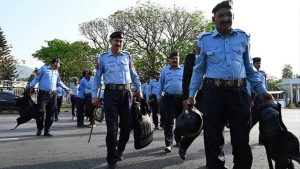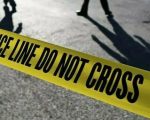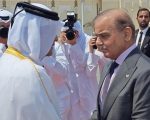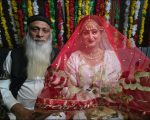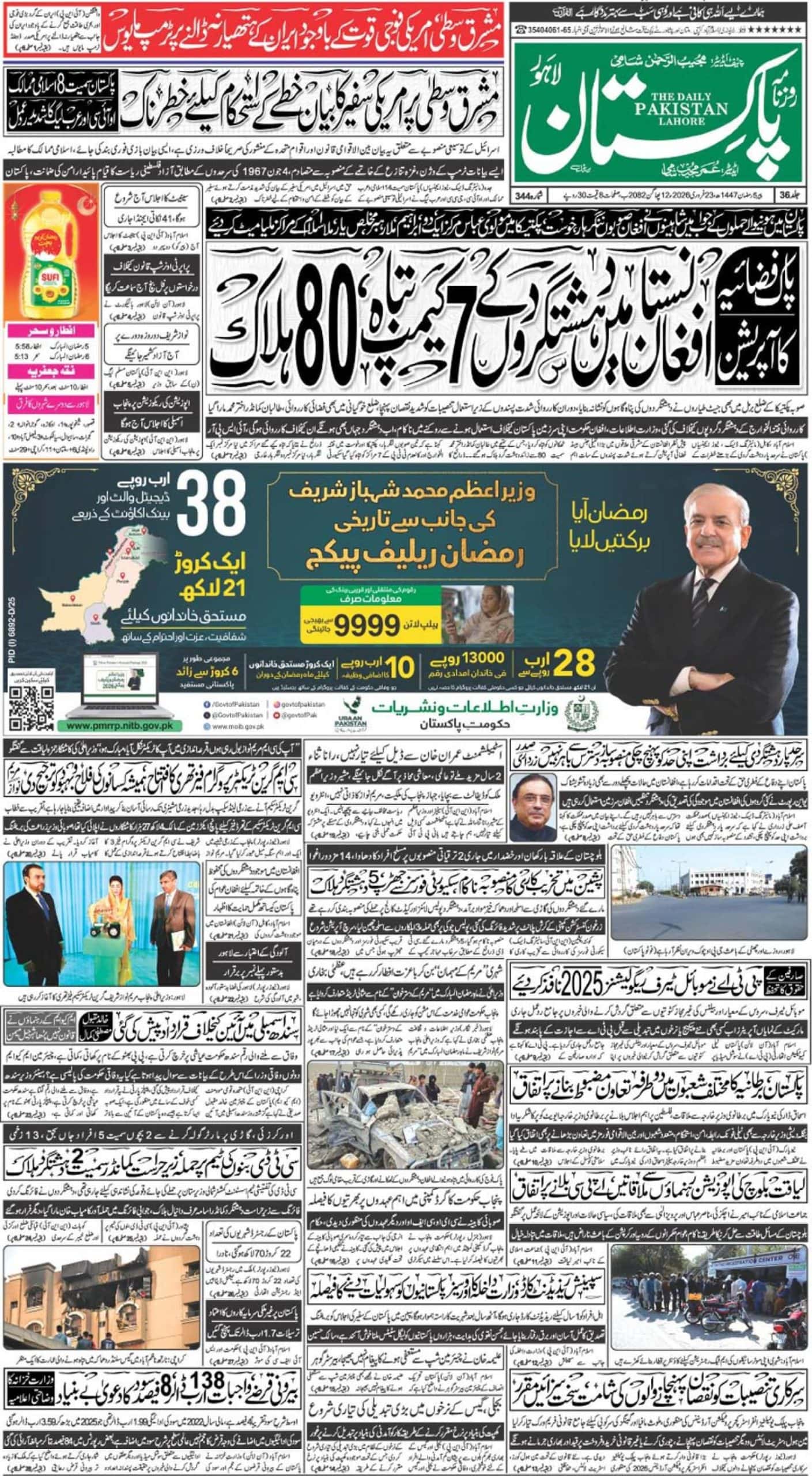The political fate of Prime Minister Nawaz Sharif has been hanging in the balance since April 20 this year when two senior judges of the Supreme Court disqualified him while three other preferred to wait for more evidence to emerge through Joint Investigation Team comprising officials from country’s top investigating bodies, the State bank and more importantly military-run secret services— the ISI and MI.
Investigating officials were directly nominated by the top court after its adverse ruling regarding how systematically Prime Minister Nawaz has been controlling state institutions. This has been the key reason that they did not open up an independent probe against him and his close family members following the Panama papers scandal in 2016. The plain reading of the judgement implies that the state institutions opted to become silent partners in the financial crimes of the ruling family.
Pattern of money laundering from Pakistan
The pattern of financial crimes highlights the decades-long old modus operandi of the top ruling class who have allegedly minted money in the name of mega-development projects. Their agents extensively purchase dollars from the open market and smuggle them out of the country to set up secret offshore companies, thus building a business empire abroad. The part of the smuggled currency is then legalised by channelling it back to Pakistan through the banking system in order to run their political campaigns and maintain a luxurious lifestyle.
The charge sheet referred to in the opposition’s petitions and subsequent split judgements by five judges reflect a similar pattern of illegal transfer of money, even though this doesn’t necessarily mean that banking channels have not been used to transfer ill-gotten money from Pakistan to abroad particularly before 9/11 when stringent measures were not in place.
A very complicated system of bank accounts is used across the globe to conceal the identities of the real owners before the money obtained through kickbacks in Pakistan ends up in off-shore companies in foreign destinations. These off-shore companies then purchase properties on behalf of their real hidden owners. This pattern of money laundering has been allegedly used in cases involving former President Asif Zardari and his late wife Benazir Bhutto, as well as Prime Minister Nawaz Sharif and his children.
Basic facts of the case against Sharif family
In early 2016, Prime Minister’s son Hussain Nawaz publicly admitted having owned overseas off-shore companies in anticipation of the Panama Paper scandal. He argued that it was entirely legal for him to do so since he was a foreign national who could claim immunity from prosecution in Pakistan. As a matter of fact, this was an attempt to save the prime minister who apparently had no direct holdings in off-shore business as detailed in the Panama paper scandal.
However, in accordance with Pakistan’s law, the entire burden of proof has virtually fallen upon Nawaz Sharif being an elected prime minister no less than three times, given the fact that his children were dependent on him when expensive properties were purchased in London through two Panama-based off-shore companies Nielsen and Nescoll between 1993 and 1995.
Therefore, the prime minister allegedly manufactured facts that these proprieties were purchased after 2006 to show that his children were independent at the time, and therefore accountable for their own wrongdoings. The entire defense of son Hussain Nawaz revolved around the fact that his grandfather had chosen him to inherit the entire family business, which the elder Sharif first set up in Dubai, Qatar and then in Jeddah, Saudi Arabia in the early 2000s, and that the sale of steel mills in Saudi Arabia had helped Hussain Nawaz to purchase properties in London in 2006.
Therefore, the critically important part of the judgement of two senior most judges Justice Asif Saeed Khan Khosa and Justice Ijaz Afzal revolves around the web of contradictions that the Prime Minister and his close family members wove around themselves when they tried to justify the very ownership of three luxurious residential properties in London. This was also the reason that the two judges noted that none of the children of the prime minister has ever claimed that the businesses set up or the properties acquired in their name had initially been obtained through any personal earning or resources of their own.
They found that the children and wife had conceded in their media interviews in the past that they were dependent on Nawaz Sharif when the properties were purchased in the early 1990s. Therefore, two judges said that these properties were ostensibly disproportionate to the declared and known sources of income of the prime minister, and ordered the National Accountability Bureau to hold his trial on the charges of corruption and corrupt practices.
The prime minister’s public speeches to clarify his position and the subsequent dubious letter of senior Qatari prince to prove the money trail of Sharif family’s business on the basis of hearsay led two judges to find enough conflicting material against him to prove that he had lied to the nation by hiding his assets. This prompted them to instantly disqualify him on moral turpitude under articles 62 and 63 of the constitution and not on money laundering charges.
Their judgement, however, does not hold instant legal grounds since it was only passed by two judges out of a panel of five. Nonetheless, their ruling cannot be sidelined due to the moral legitimacy it has attained. The dissenting ruling of two judges has given a lead role to investigators whose legal formulations for more investigations now must match with the minority judgement which in every sense of the word makes sense when one looks at the apparently fabricated evidence that the ruling family has come up with. This was the precise reason which led all five judges to set aside all evidence that prime minister and his family came up with to prove the legitimacy of the sources of the income with which they setup clandestine business of off-shore companies.
The focus of the investigation
Three other judges whose judgement holds legal ground withheld their final verdict on whether to disqualify prime minister. They instead ordered that Joint Investigation Team be set up to find more corroborating evidence about the liabilities and sale proceeds of Sharif family’s steel mills in the Gulf countries, and on whether his sons Hassan Nawaz and Hussain Nawaz had the means on their own in the early nineties to purchase the very expensive properties in London. The JIT would also investigate the sudden emergence of the letter of Hamad Bin Jassim Bin Jaber Al-Thani, the Qatari prince who through an affidavit made an failed attempt to own the money trail to the properties that Sharif family frivolously claimed to have purchased in London in 2006.
The judges also tasked the investigators to find out who among children, including Marium Nawaz, were the real and beneficial owners of Nielsen Nescoll, the off-shore companies through which luxurious properties were bought in Britain, as well as the trail of hundreds of millions of rupees gifted by Hussain Nawaz to his father Nawaz Sharif after he became the prime minister for the third time following the 2013 elections.
What would matter in the investigation?
The success of the investigators largely hinges upon not only new pieces of evidence but also on how far they would go in retrieving the original documents containing real evidence from Federal Investigation Agency (FIA) and National Accountability Bureau (NAB), the top investigating bodies that are also known to be infested with corruption.
Ishaq Dar, Pakistan’s Finance Minister, in a confessional affidavit before a magistrate in 2000 provided specific details on how money was channeled illegally outside Pakistan on behalf of Prime Minister Nawaz Sharif and his brother Shahbaz Sharif, Chief Minister Punjab. Dar is also a close relative of the prime minister.
Later Dar retracted his statement, arguing that he did so under duress from the then military junta and subsequently Lahore High Court set aside his confessional affidavit. The real trick was played by NAB by not filing an appeal with the Supreme Court against this unusual High Court verdict. Two Supreme Court judges in their dissenting note on April 20 this year ordered the NAB to file an appeal with the top court requesting the waiver of time-bar condition to hear the appeal against High Court ruling.
Now the real legal turnaround would revolve around the ability of investigators to reach to the conclusion in their final findings within next two months, in order to prove that Dar’s past confessional statement corroborates with the evidence that hopefully, they should retrieve from the NAB and FIA or any other source in and outside Pakistan. This would pave the way for three members forming the majority judges overseeing this investigation process to also order NAB to file an appeal against Lahore High Court verdict in favour of Dar. Even if one among these three judges orders NAB to file an appeal with the Supreme Court, the case is most likely to be reopened since two other judges have already made these orders. If that happens, then sooner or later, the political fate of both Sharif brothers will be sealed.
Dar cooperated willingly with officials of military junta after 1999’s military coup to the extent that he behind the scene helped the regime to prepare federal budget, Therefore, all he disclosed in his affidavit probably was not under duress. The investigators need to scrutinize afresh his confessional affidavit which may reveal crucial details matching with the hard and circumstantial evidences on illegal money trail from Pakistan to overseas destinations.
That is not all. Prime Minister and his three children have already made public statements which are a web of contradictions and clearly reflects the fact that they have lot to conceal. An honest and to the point “ interrogation” of Prime Minister, two sons and the Finance Minister, would reveal a treasure of information and leads.
Another uphill task of the investigators would be to verify parts of photocopies of Panama papers which provides insight on how Marium Nawaz was the beneficial owner of off-shore business companies. Probably that is an important clue which if verified through more investigations could put an end to her ambitions to replace her father after next general elections.








